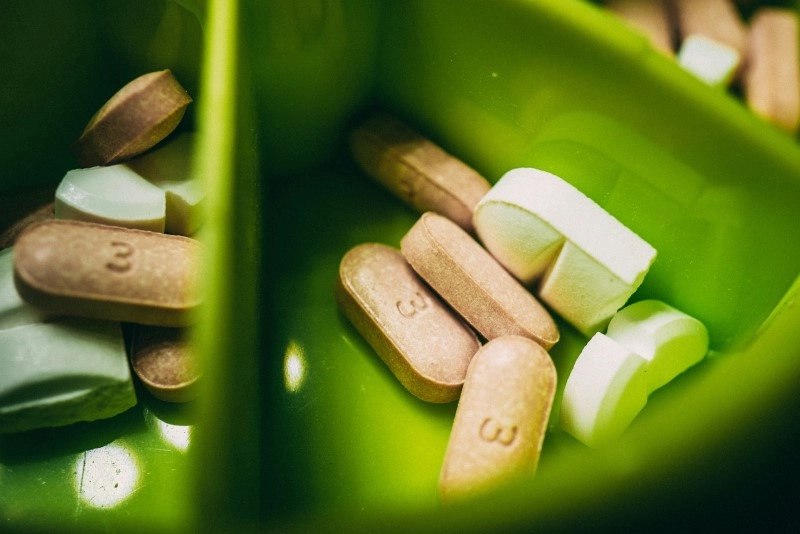- This topic is empty.
-
AuthorPosts
-
2025-04-16 at 5:59 pm #6272
Urolithin A (CAS No.:1143-70-0) is a chemical compound with the molecular formula C₁₃H₈O₄ and a molecular weight of 228.2 g/mol. Its IUPAC name is 3,8-dihydroxy-6H-dibenzo(b,d)pyran-6-one. In this blog post, SACH will share the functions and biological activities of chemically synthesized natural compound urolithin A, which has potent antioxidant activity, anti-inflammatory properties, and plays a key role in mitochondrial health and autophagy activation.
Antioxidant Activity of Natural Bioactive Compound Urolithin A
Oxidative stress, resulting from an imbalance between reactive oxygen species (ROS) production and antioxidant defenses, is a major contributor to cellular damage and aging-related disorders. Urolithin A exhibits significant antioxidant capacity by scavenging ROS and upregulating endogenous antioxidant systems. Studies have shown that UA enhances the expression of nuclear factor erythroid 2-related factor 2 (Nrf2), a key transcription factor that regulates the expression of antioxidant enzymes such as superoxide dismutase (SOD), catalase, and glutathione peroxidase. By activating Nrf2 signaling, UA reduces oxidative stress and mitigates damage to lipids, proteins, and DNA, thereby exerting cytoprotective effects.
Anti-inflammatory Properties of Natural Compound Urolithin A
Chronic inflammation is a hallmark of numerous metabolic and degenerative diseases, including cardiovascular disorders, neurodegeneration, and cancer. Urolithin A exerts anti-inflammatory effects by modulating key inflammatory signaling pathways. Specifically, UA inhibits the activation of nuclear factor-kappa B (NF-κB), a critical regulator of pro-inflammatory cytokines such as interleukin-6 (IL-6), tumor necrosis factor-alpha (TNF-α), and interleukin-1 beta (IL-1β). Additionally, UA suppresses the activation of mitogen-activated protein kinases (MAPKs), including extracellular signal-regulated kinases (ERK), c-Jun N-terminal kinases (JNK), and p38 MAPK, all of which play crucial roles in inflammation-mediated cellular responses. These anti-inflammatory properties make UA a promising candidate for therapeutic interventions targeting chronic inflammatory diseases.

Mitochondrial Health of Natural Bioactive Compound Urolithin A
Mitochondrial dysfunction is a central feature of aging and numerous pathological conditions, including neurodegenerative diseases and metabolic disorders. Urolithin A has been shown to enhance mitochondrial function by promoting mitophagy, the selective degradation of damaged mitochondria. By facilitating the clearance of dysfunctional mitochondria, UA helps maintain cellular energy homeostasis and reduces the accumulation of defective organelles that contribute to oxidative stress and inflammation. Furthermore, UA has been found to increase mitochondrial biogenesis through activation of the peroxisome proliferator-activated receptor gamma coactivator 1-alpha (PGC-1α) pathway, which plays a crucial role in the synthesis of new mitochondria. These findings suggest that UA may be beneficial in combating mitochondrial decline associated with aging and disease.
Autophagy Activation of Natural Bioactive Compound Urolithin A
Autophagy is a cellular degradation process essential for maintaining cellular homeostasis by eliminating damaged organelles and protein aggregates. Impaired autophagy has been implicated in various diseases, including neurodegeneration and cancer. Urolithin A has been reported to enhance autophagy by modulating key regulatory pathways. Specifically, UA activates AMP-activated protein kinase (AMPK), a crucial energy sensor that promotes autophagic flux by inhibiting mammalian target of rapamycin (mTOR), a negative regulator of autophagy. Additionally, UA upregulates the expression of autophagy-related genes such as LC3 and Beclin-1, further supporting its role in cellular quality control. Through these mechanisms, UA contributes to cellular longevity and resilience against stress-induced damage.
Conclusion
Urolithin A is a bioactive natural compound with significant potential for promoting human health through its antioxidant, anti-inflammatory, mitochondrial-enhancing, and autophagy-activating properties. Its ability to mitigate oxidative stress, regulate inflammatory pathways, support mitochondrial function, and enhance autophagy positions it as a promising therapeutic agent for aging-related diseases and metabolic disorders.
-
AuthorPosts
- You must be logged in to reply to this topic.
